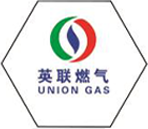
10 月 . 11, 2024 21:14
Back to list
Pressure Pipe Fundamentals and Applications in Engineering and Construction
Understanding Pressure Pipes Importance, Types, and Applications
Pressure pipes are crucial components in various industries, playing a significant role in the safe and efficient transport of fluids. These pipes are designed to withstand internal pressures generated by the fluids flowing through them, making them essential in applications such as water supply, oil and gas distribution, and chemical processing. In this article, we will explore the significance of pressure pipes, the various types available, and their applications across different sectors.
The Importance of Pressure Pipes
Pressure pipes are engineered to hold up against high internal pressures without failing. This capability is vital for maintaining the integrity of a piping system, ensuring that fluids can be transported without leaks that could lead to environmental hazards, financial losses, and injuries. The design and materials used in pressure pipes are critical in determining their strength, durability, and longevity. Factors such as temperature, pressure rating, and the nature of the fluid being transported directly influence the selection of the appropriate pipe.
Types of Pressure Pipes
Several materials and types of pressure pipes are available, each with its own advantages and disadvantages depending on the application
1. PVC (Polyvinyl Chloride) Pipes PVC pipes are widely used due to their lightweight, corrosion resistance, and cost-effectiveness. They are suitable for low-pressure applications, such as irrigation systems and drainage. However, they are not ideal for high-temperature or high-pressure conditions.
2. CPVC (Chlorinated Polyvinyl Chloride) Pipes CPVC pipes can withstand higher temperatures and pressures compared to regular PVC, making them more suitable for hot water applications. They are commonly used in residential plumbing and industrial applications.
3. HDPE (High-Density Polyethylene) Pipes HDPE pipes are known for their flexibility, chemical resistance, and longevity. They are often used for water and gas distribution. Their high tensile strength allows them to withstand pressures and environmental stressors, making them suitable for underground installations.
.
5. Ductile Iron Pipes Ductile iron pipes combine the strength of cast iron with increased flexibility, making them a preferred choice for water distribution systems. Their mechanical properties allow them to handle high pressures effectively.
أنبوب الضغط

6. Copper Pipes Though not as common for high-pressure applications, copper pipes are often used for plumbing and heating systems due to their resistance to corrosion and excellent thermal conductivity.
Applications of Pressure Pipes
Pressure pipes find numerous applications across various industries
- Water Supply Systems Pressure pipes are essential for distributing potable water to homes and industries, ensuring a reliable and safe water supply.
- Oil and Gas Industry High-pressure pipes are used to transport crude oil and natural gas from extraction points to refineries and distribution locations.
- Chemical Processing In the chemical industry, pipes need to withstand corrosive substances at high pressures, making material selection crucial for safety and efficiency.
- Firefighting Systems Pressure pipes are integral to fire protection systems, delivering water at high pressures to hydrants and sprinkler systems.
- Mining In mining operations, pressure pipes are used for slurry transport and dewatering applications, where high pressure is necessary to move materials effectively.
Conclusion
The role of pressure pipes in modern infrastructure cannot be overstated. They are vital for the safe transport of fluids and gases across various sectors. Understanding the types of pressure pipes available and their respective applications can help in selecting the right materials for specific needs. As industries continue to evolve, the demand for reliable and efficient pressure pipe systems will only increase, making it essential to keep abreast of technological advancements and industry standards in piping systems. By ensuring the integrity and performance of pressure pipes, industries can mitigate risks and promote sustainability in fluid transport.
Latest news
-
Unlocking The Quality Gas Pressure ReducersNewsNov.01,2024
-
The Role of Gas Pressure Reducing StationsNewsNov.01,2024
-
The Importance and Functionality of Safety Relief ValvesNewsNov.01,2024
-
The Essential Role of Safety Valves in Natural Gas ApplicationsNewsNov.01,2024
-
The Essential Role of Gas Pressure RegulatorsNewsNov.01,2024
-
Enhance Your Premium Gas FiltersNewsNov.01,2024

